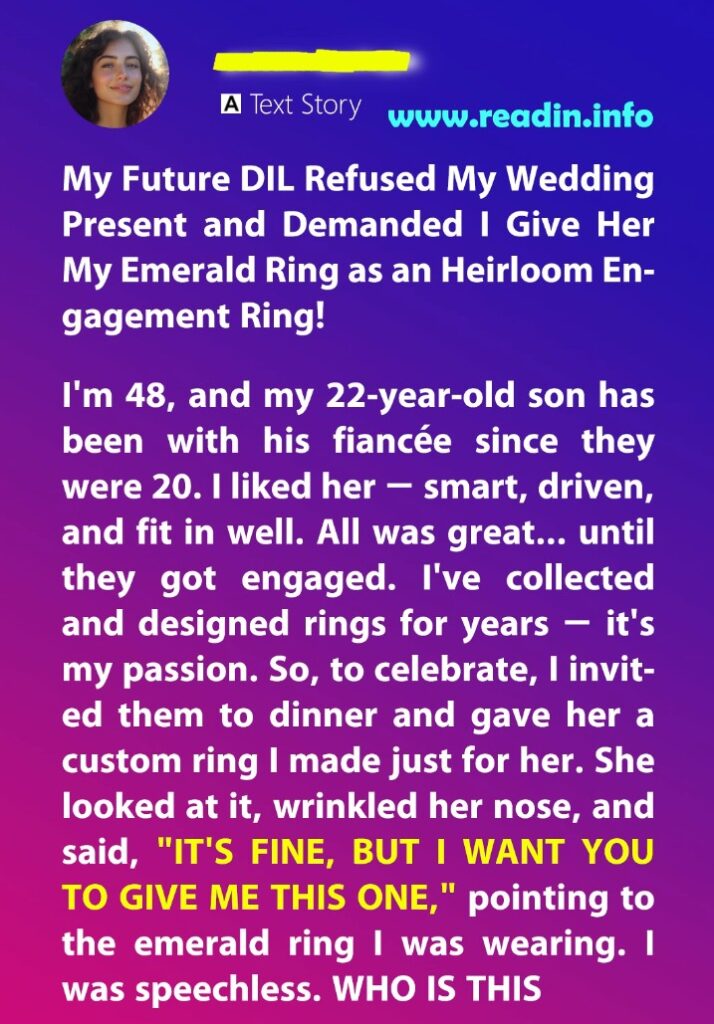Martha, a 48-year-old jewelry maker and devoted mother, had always believed that love was built on respect, not entitlement. When her son Brandon got engaged to Alice—a bright, confident young woman—Martha welcomed her warmly, even crafting a custom necklace as a heartfelt wedding gift. But what began as a celebration of unity quickly unraveled into a confrontation that tested Martha’s values.
During a family dinner, Alice dismissed the necklace and demanded Martha’s emerald ring instead—an heirloom engagement ring, she insisted. But the emerald wasn’t just a gem. It was a symbol of Martha’s journey: years of sacrifice, resilience, and quiet triumph. She had designed it during a time when money was scarce and dreams were fragile. To Martha, the ring represented earned beauty, not inherited privilege.
Alice’s demand wasn’t a request—it was a declaration. She claimed the ring should be hers because it was “worn the least,” ignoring the emotional weight it carried. Martha was stunned. Gratitude and humility—values she had instilled in her children—seemed absent in Alice’s approach. The moment felt less like a family milestone and more like a transaction.
Martha stood firm. She explained the ring’s significance and offered the necklace instead, hoping Alice would recognize the gesture’s depth. But Alice refused again, calling it “not good enough.” That rejection cut deeper than any insult—it revealed a fundamental mismatch in values.
In the days that followed, Martha reflected. She loved her son deeply and wanted him to be happy, but she couldn’t ignore the red flags. Love, she realized, isn’t just about welcoming someone into the family—it’s about mutual respect. She told Brandon the ring would remain hers, not out of spite, but out of principle. It wasn’t just jewelry—it was legacy. And legacy, she believed, should be earned, not demanded.


